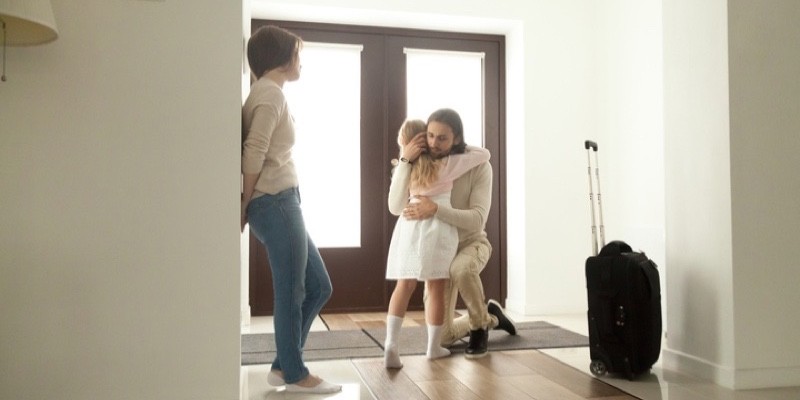
As a parent, a conflict over a child can be challenging, and many parents end up in a conflict when they are in court over a child custody matter.
New Jersey child custody laws can be complex, and parents often find it difficult to understand their rights and responsibilities under the law. The court’s preference is that children have frequent contact with both parents and that the parents share the rights and responsibilities of raising the children.
What Is a Custody Agreement?
During the divorce process, couples with minor children will work to establish an agreement regarding their children’s custody and care. The judge will make the final decision. Once approved, the agreement will be included in the official court order and must be adhered to by the parents.
If parents cannot reach an agreement regarding custody, the court may require mediation to resolve any disputes unless there is a domestic violence order in effect. Should mediation fail, the divorce may go to trial, and the judge will make the decisions on custody arrangements.
What Is a Custody Evaluation?
In instances where the parents cannot reach a custody agreement and mediation fails, the court may order an investigation by the Family Division. Investigators may evaluate:
- Each parent’s character and fitness.
- Economic condition of the family.
- Each parent’s homes where the children will reside or visit.
- Both parents’ criminal records.
New Jersey laws state that only qualified mental health professionals be allowed to make recommendations regarding character and fitness, and the judge will assign a professional to conduct the custody evaluation. During the process, the evaluator administers psychological testing, examines certain records, and interviews the parents and/or the children. When complete, the evaluator will submit recommendations to the court.
Judges are not required to follow the recommendations, however, many put a lot of importance on what the evaluator believes is in the children’s best interests. Many parents reach an agreement after seeing the custody evaluation recommendations. However, those who are still in dispute may be asked to submit separate custody and parenting time/visitation plans to the court, including a parenting schedule and an explanation of why they are requesting a specific type of custody.
What Are the Different Types of Child Custody in New Jersey?
Under New Jersey law, child custody is the parents’ legal responsibility to care for and make decisions on behalf of their minor children. There are generally two types of child custody: legal and physical. Each of these comes with its own set of responsibilities. Typically, a child custody case will address both issues.
Legal Custody
Legal custody pertains to the parents’ authority in major decision-making issues regarding the children’s health, education, safety, and well-being. Legal custody does not pertain to day-to-day decisions, which are typically made by whichever parent the child is physically with at the time. Major decisions include where the children attend school, religious services or instruction, or medical treatments other than routine health care or emergency treatment.
Different types of legal custody include:
- Joint legal custody: The most common and preferred type of custody is joint legal custody, meaning both parents have the right to participate in making major decisions regarding the children. Parents may choose to be more specific when developing custody agreements, such as choosing to make joint decisions on some matters, such as medical treatment. Having joint legal custody does not mean both parents will agree with every situation, so it is common to include provisions in the agreement of how future disputes will be resolved to avoid courtroom battles.
- Sole legal custody: The parent assigned sole legal custody has the right to make all decisions regarding the children without consulting the other parent. Sole legal custody is less common and is typically seen in cases where one parent has been deemed unfit to care for the children, which is determined by:
- The parent is incapable of being entrusted with the children’s care or whose actions are “grossly immoral.”
- The parent neglects the children’s protection, care, maintenance, or education.
- The parent endangers the children due to “vicious, careless, or dissolute habits.”
Physical Custody
Physical custody pertains to where the children will live following the divorce. Types of physical custody include:
- Joint physical custody: In joint physical custody, the children alternate their time between each parent’s residences, divided based on an agreed-upon schedule within the custody agreement. Joint physical custody is rarely evenly split due to several factors, such as work schedules, physical distance between homes, and children’s extracurricular activities. The parent who provides the children’s primary residence during the school year is considered the “parent of primary residence” in New Jersey, and the other is considered the “parent of alternate residence,” which may affect child support calculations.
- Sole physical custody: The parent granted sole physical custody is considered to be the “custodial parent,” and the children reside mostly or entirely with this parent. In sole physical custody arrangements, the non-custodial parent is afforded visitation, which is the right to spend an allotted time with their children and may or may not include overnight visits.
How Is Custody Decided in New Jersey?
The court decides on legal and physical custody based on the best interests of the child. Each custody case is unique, depending on the family’s circumstances, so the law outlines several factors to be considered, such as:
- Parents’ ability to agree, communicate, and cooperate concerning the children.
- Parents’ willingness or unwillingness to accept custody terms.
- Stability and fitness of each parent.
- Both parents’ current employment status.
- Age and number of children.
- Each child’s needs and safety.
- Each child’s preference, if of eligible age.
- Each parent’s ability to provide a stable home environment.
- Distance between parents’ separate residences.
- History of domestic violence.
- Relationship of each parent and the children.
- Amount of time each parent spent with the children before and after separation.
- Each child’s interaction and relationship with parents and siblings.
- Quality and continuity of the children’s education.
- Any other factors that the court deems relevant.
The ultimate goal of the New Jersey court system is to develop a plan that allows both parents to participate in their children’s lives unless there are significant safety issues.
How Are Parents Determined to Be Unfit?
Determining whether a parent is unfit is only ordered when circumstances of custody arrangements may be harmful to the child. New Jersey laws state the court may deem a parent to be unfit if they have:
- A history of drug and alcohol abuse or addiction.
- A history of domestic violence.
- Demonstrated no interest in the care and support of the children.
- One parent has been the primary caregiver for most of the children’s lives.
Do Grandparents Have Visitation Rights?
In New Jersey, grandparents are given the right to request reasonable visitation with grandchildren, including after separation, divorce, or one parent’s death. If the matter comes before the court, grandparents must provide evidence supporting that spending time with grandparents is in the children’s best interests, such as:
- Grandparents have been actively involved in the grandchildren’s lives.
- Grandparents are mentally, physically, and emotionally fit to care for the children.
- The amount of time spent with the grandchildren.
- The nature of the relationship between the grandparents and the children’s parents.
- Any financial support given for the grandchildren.
- Whether the children ever lived with the grandparents for an extended period.
- Any other relevant factors.
Why Should You Go to Wiley Lavender Maknoor, PC?
Our New Jersey child custody attorneys at Wiley Lavender Maknoor, PC are here to help if you have a child custody issue. We have decades of experience in New Jersey courtrooms, and we take the time to understand our clients so that we can fight for what is best for them and their families. Let us help you navigate the custody process.
New Jersey Child Custody Attorneys at Wiley Lavender Maknoor, PC Help Divorcing Parents With Child Custody Agreements
Our skilled New Jersey child custody attorneys at Wiley Lavender Maknoor, PC will focus on your children’s best interests. Call us today at 732-494-6099 or contact us online to schedule a free consultation. Located in Metuchen, New Jersey, we serve clients in Middlesex County, Monmouth County, Union County, and Somerset County.
 Google Screened
Google Screened
